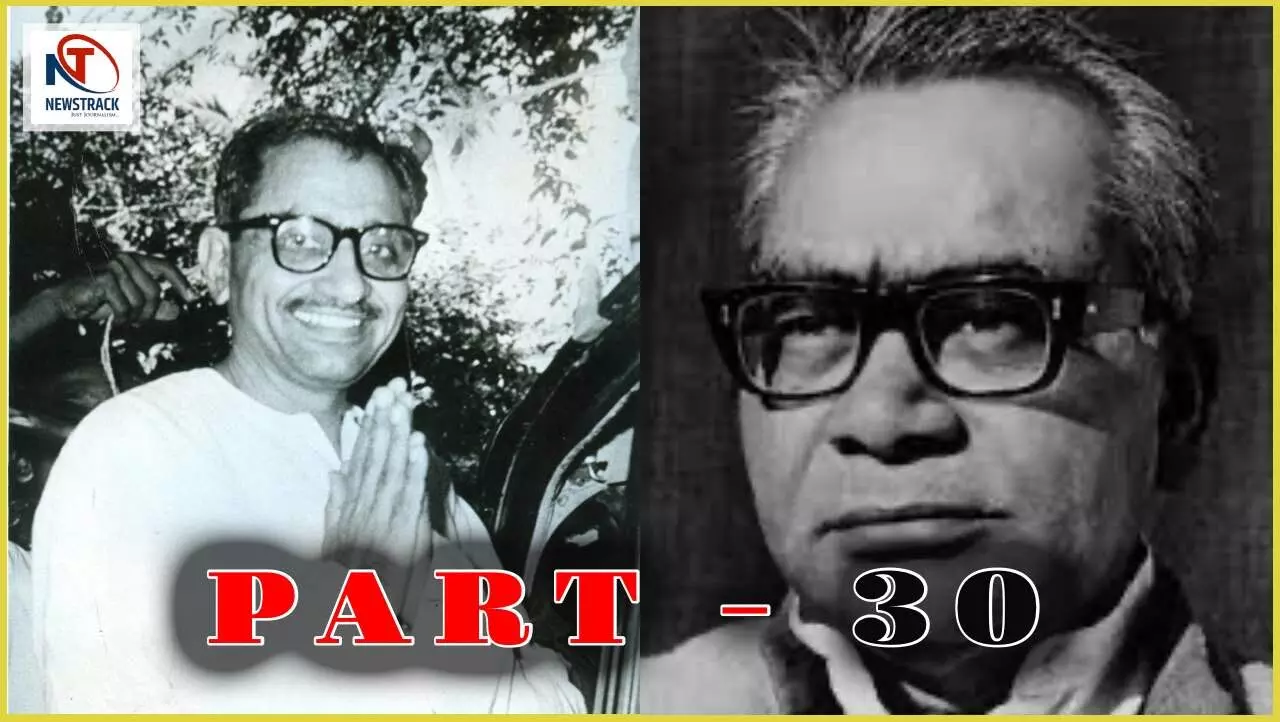TRENDING TAGS :
Book Part 30: The Ideal of Rashtranirman – Nation-Building as a Sacred Duty
Ram Manohar Lohia and Deen Dayal Upadhyay Book Part 30: This chapter explores their shared belief in constructive patriotism, where every citizen is a nation-builder, and every act of service is an act of national devotion.
Ram Manohar Lohia and Deen Dayal Upadhyay Yogesh Mishra Book Part 30
For Ram Manohar Lohia and Deendayal Upadhyay, the task of nation-building (Rashtranirman) was not a political campaign or a bureaucratic project — it was a sacred obligation, a lifelong commitment. Both envisioned India not just as a geopolitical entity, but as a moral and cultural civilization whose strength lay in justice, service, and inner awakening. This chapter explores their shared belief in constructive patriotism, where every citizen is a nation-builder, and every act of service is an act of national devotion.
1. Lohia’s Call for Creative Citizenship
Lohia believed that the people must not wait for the state to transform society — they must lead it. His nation-building principles included:
• Social equality as the foundation of unity
• Labor and simplicity as national virtues
• Reform of caste, class, and gender relations as patriotic acts
• Active participation in local development, education, and ethics
He believed the nation must be built from the bottom up, by the people themselves.
2. Upadhyay’s Spiritual Patriotism
Deendayal Upadhyay viewed Rashtranirman as a dharmic yagna — a sacred offering:
• A nation is not just built by laws, but by values and vision
• Nationalism must be inclusive, ethical, and rooted in Indian culture
• Service (seva), character-building, and decentralization are acts of Rashtranirman
• Every Indian must see themselves as a guardian of civilization, not just a voter
He urged for soulful nationalism, not superficial slogans.
3. Institutions, Not Just Infrastructure
Lohia stressed that schools, panchayats, cooperatives, and local enterprises were true symbols of national progress — not just roads and buildings.
Upadhyay emphasized the importance of family, dharma, and education in shaping national character.
Both believed that healthy institutions cultivate healthy nations — and institutions must be rooted in public participation and moral discipline.
4. Role of Youth in Nation-Building
Lohia called upon youth to become rebels with responsibility, challenging injustice and reconstructing democracy.
Upadhyay envisioned youth as torchbearers of Bharatiyata, equipped with knowledge, humility, and service.
Convergence: Nation-building is not age-bound — it is a lifetime pursuit driven by purpose.
5. The Eternal Project of Rashtranirman
Nation-building is never finished. Both thinkers agreed that:
• Every generation must renew the nation’s soul
• Crisis must be met with creativity, not complaint
• Rashtranirman must balance modern challenges with civilizational memory
• Justice, identity, and compassion must be its pillars
Conclusion
Ram Manohar Lohia and Deendayal Upadhyay offered India a vision where every citizen is a karmayogi, and every act of love, labor, or learning contributes to national awakening. One stood in protest, the other in prayer — but both stood for selfless, fearless, and creative patriotism. In their ideals, Rashtranirman is not a destination, but a daily discipline — a call to align personal life with public good, and to see the nation not just as a flag, but as a shared soul.


